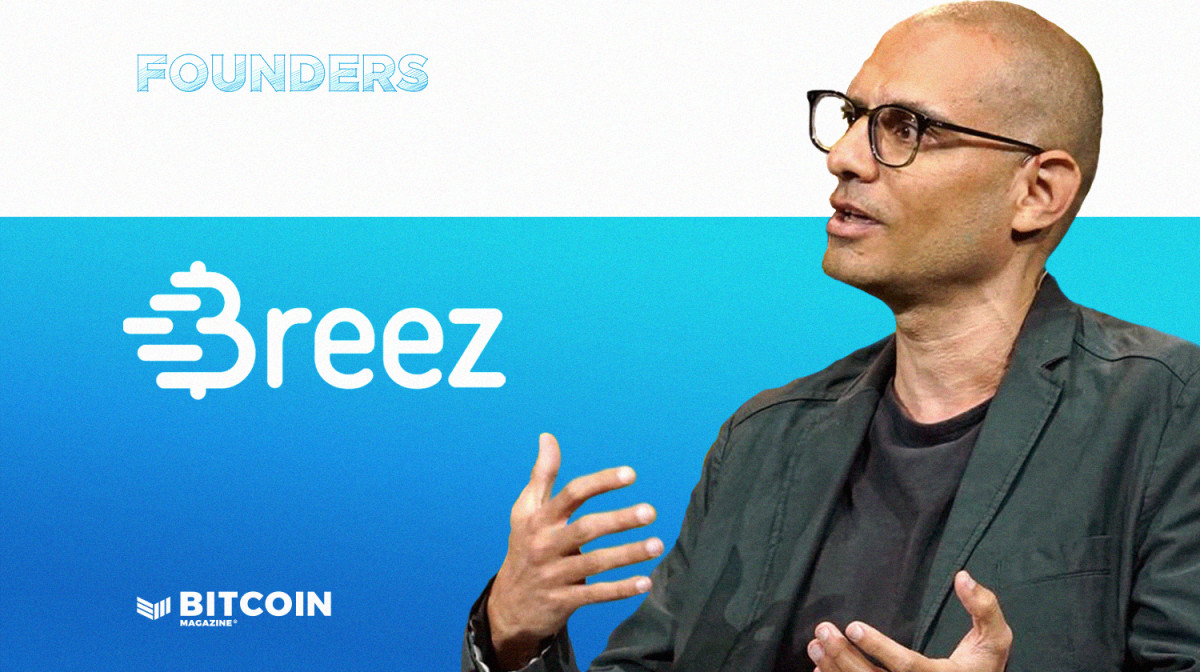Category: Crypto
The State Is The Terrorist In The Case Against Samourai Wallet
“The State is any entity that can retrospectively pardon a crime. If you forgive a murder, you get an army. If you forgive an assault, you get police. If you forgive a theft, you get taxes. And this notion that there exists the sovereign ability to change the rules for a limited number of people and grant them licenses to do things that would otherwise be criminal gives you a very clear definition of the State. The State is what washes your hands when you do something that is inherently wrong.” @leashless
The recent imprisonment of the developers of Samourai wallet implies a new attack by the United States government on privacy, financial freedom, and especially the use of cash.
They accuse the owners of Samourai of conducting money transmission without a license and of not adhering to the draconian anti-money laundering and anti-terrorism financing measures.
First, they are accused of money laundering, a crime that in any libertarian legal system would not be considered a crime. In any system of social organization, whether minarchist, capitalist, libertarian, anarchist, agorist, or any other moderately rational form, for there to be a crime, there must be a victim. That is to say, punishing anyone is not allowed unless they have victimized another person. For there to be a victim, there must be non-consensual harm to another person. Only communist or pro-communist systems can tolerate the exacerbated fascism of punishing individuals even though they have never harmed anyone.
The crime of money laundering according to current law essentially consists of the action of concealing the illicit origin of funds obtained through illegal activities seeking to bring that money (illegally) into the legal financial system to give the appearance that it comes from legitimate activities. That is, a crime without harm. In other words, an action that clearly should not be punishable. It is even an action that deserves to be rewarded. Does not the “criminal” who decides to use his money to acquire goods and services that does not harm third parties help society as a whole? Does society benefit from hindering the use of money by criminals? Why does the State promote the penalization of an absolutely innocuous activity like using money when it has already prohibited harmful activities against third parties, which are what make someone a criminal? Do not the voluntary disclosure programs or amnesty programs promote exactly the same action as the crime of money laundering but with the exception that in that context the behavior is legal? So, given that money laundering laws sporadically accept the action, why not accept it always? And if the action accepted by the money laundering laws (basically the same as laundering) harms society, why are they allowed? Either laundering truly does no harm and should not be illegal, or money laundering laws harm society and therefore should be illegal.
On the other hand, the practice of terrorism can be defined as the exercise of domination over another person based on imparted terror. Therefore, terrorism financing is financial assistance to an entity dedicated to dominating others based on imparted terror. In both this case of Samourai Wallet and that of Tornado Cash, Silk Road, and many others similar, the State has failed to demonstrate financial assistance to the alleged terrorists they claim to combat. If one truly wanted to combat terrorism financing, one should start by combating tax collection and money printing. Key financial instruments that contribute to the economy of the only duly proven terrorist. There is no doubt that in cases like the three mentioned above, and many others, the State arrests people in order to impart terror to other developers of similar ventures.
Finally, it should be noted that the State has no legitimacy to issue and control licenses and permits that are inherent to each man by his own human nature. In any moderately rational system of social organization, the private actions of men that do not affect third parties cannot be subject to state regulations. If a person owns a lake and allows another to fish there, the State has nothing to do with that, neither “granting” nor taking away rights, in this example “fishing licenses.” Along the same lines, there is no room for state intervention if a person wants to offer the service of money transmission for other people who voluntarily accept it and who are not victims since they have not suffered harm or made any claims against that person.
Fortunately, Bitcoin fixes all this by defunding the State and opening the possibility of transmitting value in a decentralized, peer-to-peer manner without intermediaries. But the road to hyperbitcoinization is not and will not be obstacle-free. The pursuit of maintaining the status quo and maximum control over individuals is not something the Leviathan will lose without a fight. In the meantime, many innocents will pay the cost of daring to engage in activities not expressly endorsed by the masters of the world. But I have no doubt that, eventually, the battle for freedom will be won by humanity as a whole. We are better than them in every way, we produce more, we are smarter, more creative, and resilient. And although each individual’s hand-to-hand fight against the State is physically lost by the former, as in this case of Samourai Wallet; being distributed and being many more than them, in the long run, the battle will be won with the help of the insurmountable walls that Bitcoin and cryptography help us build.
This is a guest post by Camilo JdL. Opinions expressed are entirely their own and do not necessarily reflect those of BTC Inc or Bitcoin Magazine.
Volcano Bitcoin Mining Gives El Salvador $29 Million Boost
El Salvador has mined nearly 474 bitcoins worth around $29 million since September 2021 using geothermal energy from the Tecapa volcano, official data revealed. This boosts the country’s total bitcoin holdings to 5,750 BTC valued at over $360 million.
JUST IN: 🇸🇻 El Salvador mined nearly 474 #bitcoin worth $29 million using volcano-fueled geothermal power in last three years, Reuters reports. pic.twitter.com/bBACoe9GzM
— Bitcoin Magazine (@BitcoinMagazine) May 15, 2024
The renewable energy mining operation is a collaborative effort between El Salvador and bitcoin mining firms like Foundry USA, Antpool, ViaBTC, F2Pool, and Binance Pool. It utilizes the geothermal power from Tecapa, one of El Salvador’s many active volcanoes.
Of the 102 megawatts generated by the state-owned geothermal power plant beside the volcano, 1.5 megawatts go toward Bitcoin mining. President Nayib Bukele has installed 300 specialized mining processors to facilitate the process.
El Salvador made headlines in 2021 by becoming the first country to adopt bitcoin as legal tender. Despite criticism from the IMF and others, Bukele has remained committed to Bitcoin, with a Bitcoin mining operation powered by volcano-fueled geothermal energy embodying this forward-thinking approach.
Click the image to learn more.
The country’s mining accomplishments stand in stark contrast to the scrutiny bitcoin miners face worldwide over energy usage. By tapping geothermal energy from Tecapa, El Salvador provides a renewable model for potential adoption elsewhere.
The $29 million mined demonstrates the substantial, real-world value unlocked by El Salvador’s status as the first Bitcoin nation. As more renewable mining comes online globally, the country’s volcanic model provides an ambitious precedent.
Ex-BlackRock Bitcoin ETF Lead Appointed New Vanguard CEO
Vanguard, one of the world’s largest investment firms, has named a new CEO: Salim Ramji, who previously led BlackRock’s ETF business and helped launch its spot bitcoin ETF, IBIT in January.
JUST IN: Vanguard appoints Salim Ramji as a new CEO, a former Blackrock’s #Bitcoin ETF lead.
Earlier, Vanguard refused to offer BTC ETF 👀 pic.twitter.com/KEq7KeJ3q7
— Bitcoin Magazine (@BitcoinMagazine) May 15, 2024
Ramji will replace Vanguard’s outgoing CEO, Tim Buckley. Buckley has been publicly critical of Bitcoin and opposed offering Bitcoin ETF products to clients.
Under Buckley’s leadership, Vanguard refused to provide its brokerage customers access to U.S. spot bitcoin ETFs that were approved by the SEC.
The appointment of Ramji, set to take effect July 8, signals a potential change in Vanguard’s stance. As head of BlackRock’s iShares division, Ramji oversaw the launch of the iShares Bitcoin Trust ETF.
Ramji has spoken positively about the technology underpinning Bitcoin and its potential to remove friction in financial markets.
His experience pioneering Bitcoin ETFs at BlackRock has many wondering if he will now push for similar offerings at Vanguard.
Click the image to learn more.
According to Bloomberg ETF analyst Eric Balchunas, bringing in the bitcoin-friendly Ramji means the door is “much more open now” for Vanguard to embrace Bitcoin.
The company offers index funds and ETFs to both retail and institutional investors.
As a massive player in the ETF space with over $7 trillion in global AUM, Vanguard launching a spot bitcoin ETF would be an important milestone for further mainstream adoption.
A Denial Of Service Attack On Bitcoin Consensus
Conservatism, in the literal and not political sense, has always been a core part of the Bitcoin ecosystem. Satoshi himself was very cautious and thorough in his original design attempts, and developers since have tried to be very cautious and thorough in the development process after his departure.
Numerous pieces of technology have been developed originally for Bitcoin, eventually being tested on other networks specifically out of that caution. Confidential Transactions, one of the core pieces of technology underlying Monero? It was created by Gregory Maxwell for Bitcoin. It was not implemented due to large inefficiencies in terms of data size, and because of the fact that it fundamentally changed cryptographic assumptions.
All cryptography used in Bitcoin relies on the discrete log assumption, that factoring two prime numbers of large enough size is not possible. If this assumption breaks, everyone’s private keys are crackable from their public keys. Confidential Transactions, and how they work, would allow someone to secretly inflate the money supply instead of just cracking other people’s keys, and no one would be able to tell because it obscures the transaction amounts from public view.
Similarly the SNARK scheme used in Zcash to provide zero knowledge proofs for Bitcoin was originally a proposal for Bitcoin, Zerocoin. This also was never implemented, out of conservatism and caution, on Bitcoin itself. The entire cryptographic scheme relied on trusted third parties initializing it, and in order to remain secure required users trust them to delete private key material used to initialize the system. This was deemed an unacceptable tradeoff for Bitcoin.
Even Taproot, which has been active for three years or so now, is a proposal ultimately made of two separate concepts going back to as early as 2012. MAST and Schnorr signatures. MAST is the idea of taking multiple possible spending scripts and turning them into a merkle tree, so that only the path used is ever revealed on-chain. It took 9 years for those two ideas to go from being ideas to something actually implemented.
Conservatism has always been core to how this protocol and network was developed.
Recent Proposals
I myself have been highly skeptical about any proposals floated around in the last few years since Taproot activation, preferring to be very conservative in what I choose to support. For instance, I have been arguing for the activation of BIP 119, CHECKTEMPLATEVERIFY, for years exactly because of how conservative and simple it is. I.e. because of what it does not enable.
Mechanically CTV cannot actually enable anything that is not already possible using pre-signed transactions, the only difference between that and CTV is that one is enforced by consensus, the other is enforced by trusting the people who pre-sign those transactions.
My chief focus in looking at proposed changes has always been identifying unintended or detrimental consequences. My criticisms of drivechains are a perfect example of this. Drivechains have been pitched as a scaling solution with no negative externalities to the rest of the network. I have argued for years, initially essentially alone, that that statement is in fact not true. I have delineated the arguments why I assert that is untrue, and what negative consequences that would have on the network if it were to be activated.
Most of my concern with other recent covenant proposals essentially boils down to one thing: enabling some variation of drivechains. Drivechains, or similar systems, allow anyone to be the block producer moving the state of the system forward. In practice, this means that miners have a de facto monopoly on engaging in that process should they choose to exercise it. If such a system actually gains adoption, and enables functionality that gives miners room to extract value front running transactions, like on other systems such as Ethereum, then that is an economic incentive for them to exercise that monopoly.
That is a centralization pressure for mining, and once you enable such systems there is no way to restrict what functionality these other layers or blockchains enable, so there is no way to limit them to a degree of functionality that does not introduce those problems. What you need in order to build such a system is the ability to restrict where coins can go in the future, i.e. a covenant, and the ability to ensure that data carries forward from one transaction to another.
This lets you create an open UTXO that anyone (read: miners) can commit to facilitating a withdrawal, and can either be allowed to complete or “canceled” if it is invalid. This, in combination with the ability to have a second layer state, or balances of user funds, changed and updated by anyone according to the rules of the system, gives you a drivechain like system. If you have a closed permissioned set of people who can process withdrawals, like a federation, or a closed permissioned set who can update the state of the system, again like a federation, you do not have a drivechain like system. It does not introduce the types of MEV risks and centralization pressures I am concerned about, for that to occur both the peg and the state update must be open systems that anyone can participate in, and by consensus are de facto open to monopolization by miners.
This has been my bar for whether a proposal is too liberal in what it enables for over half a decade. That isn’t to say it is a hard line that should never be crossed, but it is one that should not be crossed without a rational plan of how to deal with and mitigate the potential centralization pressures it could enable if they do in fact occur.
The Cult of Slow and Steady
As someone who has been the conservative voice for half a decade, the critic of proposals from a highly skeptical and paranoid point of view, rational skepticism and caution is essentially dead. Aside from a small group or cluster of people drowned out by the sea of noise, there is no rational analysis anymore in the call for caution and slow pace.
There is fat and lazy entitlement, demanding to be spoon fed everything. The second the spoon approaches the mouth however, it is slapped away. “How dare you try to feed me!” The last time there was actual contention around a proposal prior to this current covenant debate was the blocksize wars. People actually engaged with the issues involved then, people put in the effort to learn and inquire in an open way. Yes, there were the crazies and the dogmatic lunatics, people who would not engage in an honest discussion.
That was not the majority of people back then. Even a large portion of big blockers when challenged wouldn’t just devolve to dogmatic screeching, they would run numbers. They would engage in a discussion of where a sensible line was in terms of blocksize, and the externality or cost this would present to users. On our side, the winning side, many people joined exactly because of these types of discussions and logical arguments.
I supported the first blocksize increase proposal, Bitcoin XT. I changed my mind because of logical inquiry and discussion. I considered what can actually go wrong, and then investigated how bad those consequences could be. I spent time to better understand the things that I did not understand at the time. That is not what is happening anymore.
People knee jerk and toss out “unknown unknowns” as a counterargument to any proposed change. This is not a valid, or an intellectually honest, response to anything. Everything has unknown unknowns. Doing nothing has unknown unknowns, doing a single conservative change has unknown unknowns, doing everything all at once has unknown unknowns. That’s the whole nature of that logical category of things, you don’t know what you don’t know.
This is a nonsensical, unengageable argument that can be pulled out ad infinitum and never satisfied. It is not a genuine attempt to engage in dialogue, it is a denial of service attack against it.
There are some known unknowns, aspects or consequences of changes that we are aware of but uncertain how they will play out. This is a rational line of inquiry when discussing a change. Some aspects or possibilities with an uncertain outcome can be identified, and these can be discussed. This is not only rational inquiry, but I think absolutely critical and necessary inquiry in discussing changes to Bitcoin.
Just going “unknown unknowns!” in response to every proposal, every discussion of upsides, every analysis of the downsides to present a balanced view of things, is not a rational response. It is not good faith. By the inherent nature of unknown unknowns, this is an impossible thing to address, in either direction. Both changing and not changing Bitcoin present equal risk of unknown unknown, it is inherent in the very nature of what that is.
There is an astonishing lack of self awareness on an intellectual level of this, and a flood of people demonstrating an emotionally driven outlash in regards to acting under that lack of self awareness in public discussion.
The Denial of Service Attack
It’s bad enough to not engage inquisitively in private when confronting new information, or in the case of proposals to Bitcoin specifically, it’s even worse to take that lack of inquisitiveness out into the public discourse. This constant chant of “unknown unknowns” and “the default is no change” and all the other ossification mantras that go even further than that explicitly is not dialogue. It is denial of service.
Doing nothing but engaging in the setting of an impossible to meet bar, and disrupting any other discussion or conversation attempting to elucidate or expand everyone’s understanding of trade offs, or functionality, and then doing that consistently over and over is not engaging in good faith. That is not trying to assess whether a change is safe or not, that is not trying to gauge the likelihood or risk level of unintended consequences, that is just impulsively attempting to stop any and all change for the sake of it.
That is not rational. That is frankly just not sane.
It is like exercising a veto you hold for anything and everything, and yes, vetoes are important in consensus systems. But disrupting conversation is not the veto, the actions of actual transacting economic actors deciding what software to run or not run is the veto. This denial of service on dialogue is not some noble or righteous crusade to save Bitcoin, it is an active attack on those economic actors and their ability to gain a better understanding to make an informed decision on whether to veto something or not.
It is malicious, it is bad faith.
I think, personally, it is motivated by fear. Fear that given the ability to inform themselves, the economic majority would choose differently than individuals who engage like this in conversation. I can really see no other charitable explanation other than just outright stupidity.
The environment these conversations occur in is not good faith anymore, and that is not because of people actually proposing changes, it is because of people with their head in the sands constantly running a denial of service attack on the conversation itself. People who refuse to actually acknowledge what they don’t know. That is a known unknown if you are honest with yourself. What you do not understand, or what you do not understand well. Yet some people, oh so concerned about the unknown unknowns, refuse to fill in the gaps of their own known unknowns.
They refuse to actually learn more about things they don’t understand well. That would be one thing if it was just a quiet choice of an individual, but that is an entirely different thing when those people choose to actively interject themselves into the wider conversation and try to mislead or chase other people away from doing that for themselves.
It’s kind of ironic in a way, this playing out in parallel with ordinals and people claiming we need to “filter the spam.” Maybe we should. Not on the blockchain, as that is just not possible if the incentives of the system are not fundamentally broken, but in the conversations around that blockchain.
This is not a good faith dialogue anymore, and not because the jpeg people are meming about cats, but because the “other side” is essentially denial of service attacking everyone else, preventing them from even having a conversation about whether we even like cats (or dogs) at all.
Fiat Debases Marriage
The following is an excerpt on the debasement of marriage from “Fiat Ruins Everything” by Jimmy Song. Visit the Bitcoin Magazine Store to order a print, digital or audio copy of the book.
LOVE HAS BEEN debased.
In the past, love referred to the virtues present in enduring, intimate relationships. It demanded sacrifice, discipline, and patience. Classical writers saw love as a virtue because of its inherent difficulty. To paraphrase Apostle Paul, love is patient, kind, unenvious, and humble.59 Cultivating these qualities requires tremendous internal work and self-improvement.
Today, however, love is often used to describe any strong feeling or desire, like “I love ice cream” or “I love my job.” What was once the pinnacle of virtues has been reduced to expressing the intensity of fleeting emotions. The word love has been devalued more than trophies at a children’s competition.
While the concept of love has been cheapened, this essay is not merely a diatribe on language. I certainly lament the loss of meaning in words, but there are more pressing issues at hand. Instead, this chapter will focus on the practical consequences of love’s debasement on civilization—the institution of marriage.
The devaluation of love is not merely a linguistic issue; it has had profound implications for society. In particular, it has contributed to the breakdown of the family unit and the rise of high time-preference behavior. High time-preference refers to the tendency to prioritize short-term gratification over long-term benefits, and it has infiltrated every aspect of modern life, including relationships.
No-Fault Divorce
In 1969, Ronald Reagan, as governor of California, passed the No-Fault Divorce law—the first of its kind in the United States.60 The law aimed to reduce the bitterness surrounding divorce. Before its enactment, there had to be valid grounds for ending a marital union. For instance, if a wife wanted to leave her marriage before 1969, she needed to provide a reason, such as physical abuse or infidelity by her husband.
However, many people sought to leave a marriage without having valid grounds, leading to fabricated reasons and character defamation. Ronald Reagan’s first wife, for example, cited mental cruelty as her reason for divorce.61 The No-Fault Divorce law was intended to eliminate the need for such false accusations, akin to a parent’s policy of “I don’t care who started it” and punishing both children in a fight, regardless of the actual cause.
The law quickly gained popularity, and every state in the U.S. adopted it, many within just a few years of California’s 1969 law.62 Unfortunately, like many government regulations, the results were unintended and damaging.
With the hindsight of over half a century, we can confidently conclude that the No-Fault Divorce law has not reduced bitterness in divorce proceedings but has made it worse.63 The law has failed to put an end to false accusations, character attacks, and the overall trauma associated with divorce but made them worse. The divorce industry has flourished, while the institution of marriage has been debased.64 So, what went wrong with this law? To explore, we need to understand two historical facts about marriage.
First, marriage is fundamentally a contract or a promise, traditionally centered around lifelong fidelity. While this may seem restrictive, it serves a crucial purpose: providing a stable environment for raising children. The stability of the parental union is vital for the well-being of the offspring, so the constraints of marriage exist primarily to benefit children, rather than facilitate personal happiness.
Second, marriage has historically existed outside of government control. Government regulation of marriage is a relatively recent development, mainly rooted in historical attempts to prevent interracial marriages and polygamy.65 Marriage registration became mandatory to enforce these restrictions from the top down. The No-Fault Divorce law is another example of government regulation with unintended consequences, further eroding the sanctity of marriage and the stable environment it was designed to provide.
Every Marriage Is Open
With no-fault divorce, either party can terminate the contract without assigning blame. Consequently, marriage contracts cannot legally demand fidelity, as the option of divorce is available regardless of whether one partner cheats or not. In essence, there are no legal repercussions for infidelity, and the outcomes of divorce typically hinge on who has the more skilled lawyer, not on who broke the agreement.
Legally speaking, marriage has become a weak and undemanding contract. While you can certainly promise to remain faithful to your partner, there are no legal consequences for breaking that vow. From the government’s perspective, all marriages are essentially open marriages. This situation is akin to offering candy to diabetic patients at every meal—it undermines the very foundation of what marriage is supposed to represent.
How did we arrive at this point? Hasn’t faithfulness always been a crucial aspect of marriage? Is the notion of pledging loyalty so challenging?
Historically, most instability for families arose from external factors such as war, plague, or famine. Despite these challenges, marriages provided stable environments, enabling children to thrive. Today, however, family instability often stems from internal circumstances, with nearly half of all marriages ending in divorce66 and fertility rates at record lows.67 For many, marriage is no longer primarily focused on raising children.
Over the past century, there has been a significant shift in the perception of marriage. If you spoke to someone 100 years ago, the values associated with marriage would revolve around duty to children, sacrifice for the community, and obligation to family.68 In contemporary discussions about marriage, the conversation frequently turns to love. The difference between these perspectives is striking. One is a community-centered view of marriage, while the other is self-centered. We have regressed to a childish mindset, believing that communal institutions should revolve around our personal desires.
The L Word
“Love is all you need” is not just a Beatles lyric, but a belief that many people genuinely hold. However, considering the debasement of the word “love,” this statement is incredibly self-centered. For most individuals, marriage is pursued for personal happiness, with a desire to experience strong feelings of love. Yet, these feelings often result from the commitment, sacrifice, and responsibility that are frequently overlooked.
Many people want the rewards without putting in the work, reflecting a fiat mentality. They aspire to shoot like Steph Curry without any shooting practice. Is it any wonder that they often miss the mark?
Much like how an excessive focus on unemployment led to the flawed reasoning of Keynesian economics, an obsession with “love” at the expense of other aspects has contributed to the debasement of marriage.
When people discuss “love,” they typically refer to an internal state they desire, rather than the virtue itself. They want to be “in love” or experience an emotional high similar to a sugar rush. This self-centered view dominates contemporary perspectives on marriage, transforming it into a path to personal happiness.
As stated above, marriage was historically intended for raising children and starting a family. This objective clashes with the self-centered notion of marriage, particularly if children impede personal happiness.
No-Fault Divorce essentially endorsed and legitimized the personal happiness theory of marriage. Consequently, it’s no surprise that birth rates are plummeting, fewer families are being formed, and motherhood is portrayed as outdated. When happiness becomes the central focus, there’s little room for children. Under this paradigm, concepts like duty, order, and sacrifice lose their significance.
Click here to order a copy of “Fiat Ruins Everything: How Our Financial System is Rigged and How Bitcoin Fixes It”, by Jimmy Song.
Fiat Money Caused Marriage Debasement
The debasement of money contributed significantly to the debasement of marriage. The dollar’s break with gold in 1971 was partially due to the numerous social programs of the 1960s. In particular, LBJ’s Great Society programs like Medicare put significant pressure on the dollar, leading to the decision made in 1971.69 The U.S. was spending money it didn’t have because it was the global reserve currency.
These programs aimed to provide a social safety net for the poor. However, their effect was to replace marriages, families, and communities with entitlement programs. The No-Fault Divorce law was part of the same societal trend as the Great Society programs. They sought to reduce conflict through money, and personal well-being became a government mandate with the advent of fiat money. Fiat money, in other words, created an expectation of the government providing happiness to the people and that focus on happiness ultimately debased marriage.
The emphasis on personal happiness stems from the moral responsibility of the money printer. If the government can print money to solve a problem, it soon becomes a moral obligation. No-fault divorce and welfare programs were part of this trend of government “solving” problems for people. Fiat money made everyone a consumer of government goods instead of a producer for society and that led to an ethic based on personal happiness. Fiat money debased duty, responsibility, and sacrifice, and that in turn debased marriage.
The subsequent debasement of marriage hurt the poor the most. In particular, the debasement of marriage has devastated the Black community. In 1950, a higher percentage of Black women had ever married by age 35 than white women.70 The combination of social programs, the emphasis on individual happiness, and the debasement of marriage contributed to the dissolution of Black families.71 The lax attitude the government held toward marriage became a reality for those who could least afford it.
Bitcoin Promotes Long-term Thinking
It’s inspiring to see many people in the Bitcoin community getting married. Delving into Bitcoin encourages a long-term mindset. As you adopt low time-preference behavior with your money, it naturally extends to other aspects of life. One of the most significant long-term concerns is finding meaning, and family offers a deep sense of purpose. Low time-preference behavior fosters the formation of families.
This motivation contrasts sharply with the prevalent social mentality of seeking personal happiness. With a focus on the long-term, there’s room for sacrifice, responsibility, and commitment, which inevitably gets overshadowed when pursuing personal happiness. The traditional view of marriage aligns with low time-preference behavior. Ancient philosophers would call low time-preference behavior prudence or wisdom. It’s exactly the antidote to following the dictates of fleeting emotional rushes like “love.” Bitcoin helps break us free from our narcissistic self-indulgence.
The Beatles were wrong. Love isn’t all you need.
Ten Things You Won’t Do for Love
– 1 –
Put your phone away and experience life, because who needs human connection when you have Wi-Fi?
– 2 –
Tolerate weight gain or unemployment in your partner, because how they make you look matters more than what you committed to.
– 3 –
Uninstall Tinder, because swiping left and right on strangers is an option you need for external validation.
– 4 –
Sell your awesome MMORPG character on eBay, because your virtual self has more experience points and a cooler mount than your real-life relationship.
– 5 –
Deadlifts, because there’s no way you’re doing something consistent and difficult.
– 6 –
Quit drinking, because who needs a healthy liver and a clear mind when you can have tequila shots and questionable decision-making skills?
– 7 –
Have kids, because avoiding a minivan and endless diaper changes in the next few years is more important than your life legacy.
– 8 –
A ketogenic diet for longer than a few months, because pizza is your love language.
– 9 –
Sit through a boring date, like an opera or pottery class, because nothing is more important than being entertained.
– 10 –
Save and get out of debt, because nothing says romance like being buried under a mountain of financial stress and never-ending credit card statements.
Click here to visit the Bitcoin Magazine store to order a print, digital or audio copy of “Fiat Ruins Everything” by Jimmy Song.
Developing Financial Privacy Tools Was Today Criminalized by the Dutch Court
In the Netherlands, open source developers are now liable for how their software is used.
Alexey Pertsev, a 31-year old Russian national living in the Netherlands and one of the developers of the Ethereum-based privacy tool Tornado Cash, was today found guilty of money laundering by the Dutch court: he’s been sentenced to 64 months in prison. The fact that Pertsev never held custody of any cryptocurrency flowing through Tornado Cash — or could even control how the smart contract operated — was deemed irrelevant by the panel of judges, as he did contribute to the development of the software.
In line with Dutch public prosecutor Martine Boerlage, the court ruled that Tornado Cash was essentially ran like a business, operated by PepperSec, the company founded and operated by Pertsev and his two co-founders Roman Storm and Roman Semenov. Rather than just publishing code, the judges said, the trio benefited financially from the obfuscation of illicit funds through the tools they built.
Specifically, the judges ruled that Pertsev was personally responsible for the laundering of well over a billion US dollars worth of stolen ETH, including by North Korean hackers known as the Lazarus Group. Even though Pertsev could not stop this from happening after their software was released, the fact that he helped release software that enabled this in the first place, without including measures to prevent it, was deemed reason enough to consider him guilty.
“Tornado Cash functions in the way the defendant and its co-founders developed Tornado Cash,” wrote the judges. “So the operation is completely their responsibility.”
Tornado Cash
Tornado Cash is a smart contract on the Ethereum blockchain. Users can send ETH to the Tornado Cash smart contract, which gives them the ability to withdraw an equal amount of ETH from the same contract. Because there is no way to link ETH going into and coming out of Tornado Cash, the smart contract served as a privacy tool, allowing users to obfuscate their transaction history.
Besides the Tornado Cash smart contract itself, PepperSec helped develop tools that gave users easy access to the smart contract, most notably, a graphical user interface (GUI). This part of the mixing infrastructure, in turn, relied on a separate smart contract, which facilitated the payment of withdrawal fees through special entities called “relayers”, and was managed through a DAO (decentralized autonomous organization) and the associated TORN token.
According to the judges, the DAO did not make a meaningful difference: PepperSec was in practice still responsible for the operation of the GUI and how the relayer system functioned.
The Tornado Cash smart contract itself today operates fully independently of PepperSec, and is in fact still operational. Pertsev or PepperSec never actually “touched” any of the ETH going through the Tornado Cash smart contract; that is, they never took custody of any funds. They merely built software that Ethereum users utilized to mix their own ETH with other users, and could not stop this from happening.
So far, it had generally been assumed that this would exempt the developers from applying anti-money laundering measures— this assumption was struck down today.
Greater Relevance
The judgment could have far-reaching consequences for open source software development in general, including Bitcoin software development, at least in the Netherlands.
In Bitcoin, two of the most popular mixing services have been operated by companies: Wasabi Wallet and Samourai Wallet. Whereas PepperSec claimed that its operations were technically decentralized through a DAO, Wasabi Wallet and Samourai Wallet operated more straightforwardly, offering centralized coordination through a dedicated server. As PepperSec can be held responsible for how users use Tornado Cash, Wasabi Wallet and Samourai Wallet can logically be as well.
In line with this, Samourai Wallet founders and developers Keonne Rodriguez and William “TDevD” Hill were recently indicted by the US Department of Justice on allegations of money laundering and running an unlicensed money transmitter. Although these arrests were made on instruction of the Department of Justice (DOJ) in the United States, today’s ruling in the Netherlands may offer a glimpse of what is to come in the US. Wasabi Wallet, shortly after the Samourai Wallet arrests, announced it will cease operations of their mixing service later this month.
Moreover, based on today’s judgment, it’s viable that even developers who develop privacy tools without a centralized coordinator could in the Netherlands be held accountable if their tools are used for illicit purposes, ie. money laundering.
Pertsev’s PepperSec colleagues Storm and Semenov, meanwhile, have also been indicted in the United States last year, with the former (who resides in the US) awaiting trial in September
Pertsev does have the option to appeal the verdict. If he does, he will have to await this appeal from jail, as he was immediately taken into custody after the verdict.
The full verdict (in Dutch) can be read here.
Bitcoin’s Lightning Network In Every App: Breez CEO’s Vision
Founders: Roy Sheinfeld, Roi Erez and Yaacov Slama
Date Founded: 2018
Location of Headquarters: Remote
Amount of Bitcoin Held in Treasury: Dozens held in Breez Lightning nodes
Number of Employees: 11
Website: https://breez.technology/
Public or Private? Private
Roy Sheinfeld says the time for orange pilling is through.
Sheinfeld, one of the three founders of Breez, a company that provides a software development kit (SDK) to institutions looking to utilize the Bitcoin Lightning Network, believes that while bringing people into the Bitcoin fold via education has helped broaden the Bitcoin community, it won’t be the driving force in onboarding the next wave of Bitcoin users.
“I was orange pilled. You were probably orange pilled. Everyone in the Bitcoin ecosystem right now was probably orange pilled, but I don’t feel that the circles are expanding, and they’re definitely not expanding fast enough,” Sheinfeld told Bitcoin Magazine. “What drives adoption — what drives change in people’s behavior — is technology.”
This is why Sheinfeld, a software developer by trade, is committed to making it easier for companies to employ the Lightning Network. He wants to see more apps and services use Lightning for payments, not create more Lightning-specific apps. Think Spotify harnessing Lightning to stream sats to creators instead of developers creating more Lightning wallets.
“I always give the example of a digital camera. When the digital camera was initially released to market, everyone started using it as a replacement for the film camera, but it didn’t change human behavior,” said Sheinfeld.
“Only when the digital camera was integrated into a mobile device did it change human behavior. Today, you can’t sit to eat a meal without taking a picture of your food before you eat it. That was a dramatic change in human behavior, and that’s what I want that to happen with Bitcoin,” he added.
“I want to change human behavior because the utility of Bitcoin is something that people won’t be able to resist and use.”
And Sheinfeld is in an ideal position to help facilitate this change, as he’s been iterating with Lightning since the network’s inception.
Breez’s History
Founded in 2018, Breez is practically as old as the Lightning Network itself.
“We were the first company to start a business on top of the Lightning Network,” said Sheinfeld. “Just when the first mainnet transactions appeared on the Lightning Network, we founded Breez in order to help transform bitcoin from a store of value to a medium of exchange.”
The team at Breez started off by releasing the first Lightning wallet. In doing this, Breez became the first Lightning Service Provider (LSP), a term that Sheinfeld himself coined. Sheinfeld and co. also brought the first iteration of podcasting 2.0 to market, enabling users to stream sats to their favorite podcasters, a service that has been popularized by Fountain.
But for the last year and a half, Sheinfeld and the Breez team have focused on developing the Breez SDK, because, as Sheinfeld shared, “We think Lightning should be a commodity. Everyone should have the ability to use Lightning if they want to.”
The Breez SDK
The Breez SDK is a free and open-source software (FOSS) non-custodial solution that any person, company or institution can use. It’s powered by Blockstream Greenlight, which enables Breez to run end user nodes in the cloud while still keeping the service non-custodial, as the private keys remain in the hands of the user.
The Breez SDK also lets users swap bitcoin between the base chain and the Lightning Network and provides fiat on-ramps from third party providers.
If online retailers, for example, want to accept bitcoin payments over Lightning, all they have to do is incorporate the Breez SDK API from Breez’s GitHub into their app or website, which doesn’t take much time at all.
“I can tell you from our experience working with our partners, it takes days to add Lightning payments to their application,” said Sheinfeld. “For some partners, it takes longer — it takes weeks — but it’s not because of the complexity of using the Breez SDK. It’s really about the user experience they want to provide when integrating Lightning payments.”
Sheinfeld also added that “programmatically using the API is very straightforward for every type of developer,” and he made it clear that Breez was designed to be free and open-source so that it reflected the nature of Bitcoin. And this design is still profitable for Breez, as the company makes money when end user payments are routed through its nodes.
Companies and products such as Relai, BitBox and Blockstream Green now use the Breez SDK, but one can’t help but wonder why more companies and products aren’t employing this novel technology.
What’s hindering greater Breez SDK adoption?
Given that Breez provides a convenient way to incorporate Lightning into an app, why aren’t more companies taking advantage of it?
From Sheinfeld’s perspective, the challenge revolves around how most still perceive bitcoin.
“I think a lot of people still don’t believe in Bitcoin as a medium of exchange — even some Bitcoiners,” said Sheinfeld.
“As companies like Breez are lowering the barrier of entry and enabling developers to integrate Lightning, the challenge is no longer a technical challenge,” he added.
“What we hope to do is to get enough bottom up traction from partners that we’re working with and to cross the chasm of Bitcoin credibility where when normies that are unfamiliar with Bitcoin hear ‘Bitcoin,’ they understand, ‘Okay, bitcoin is money. I can send and receive bitcoin.’”
Sheinfeld went on to share how we begin to cross that chasm by first creating an “ecosystem of bitcoin-focused applications that allow you to interact with bitcoin as a form of money.”
Instead of trying to convince people that BTC is the best form of money, he believes it will prove itself as such as it competes with fiat currencies and other cryptocurrencies. To set this competition in motion, he wants to see Lightning integrated into multi-coin wallets, before eventually seeing it integrated into fintech applications.
“There’s no reason PayPal or Revolut won’t integrate Lightning,” said Sheinfeld.
“Once you penetrate all these types of medium of exchange services, you’re ready to take it to the next level, which is integrating bitcoin into mainstream applications,” he added.
“My time frame is 10 years. I want to see a mainstream application like Uber or Spotify integrate Lightning in the next 10 years.”
Avoiding Regulatory Scrutiny
Just a week before I spoke with Sheinfeld, Phoenix Wallet, one of the most popular Lightning wallets on the market today, opted to stop serving US customers, for fear of a greater regulatory crackdown on self-custody wallets in the wake of the US Department of Justice’s arresting the Samourai Wallet developers.
When I asked Sheinfeld if he was nervous that US regulators might come for Breez next, he calmly responded with a “No” before providing his reasoning.
“Let’s say it very clearly: Being a self-custodial wallet is allowed in the US,” said Sheinfeld. “Self-policing is the worst thing that can happen. We should self-regulate, but we don’t need to take an extreme side that’s more extreme than the law itself.”
He went on to explain that self-custodial wallet makers are not required to have a Money Transmitter License or a Money Service Business license.
“Breez doesn’t take control of user funds,” Sheinfeld stressed.
Acknowledging the Lightning FUD
Many in the Bitcoin space consider the Lightning Network a failure, because adoption of the network has been slow.
Sheinfeld argues that some of the critique is warranted.
“We deserve the Lightning FUD,” said Sheinfeld.
“There’s good marketing and there’s bad marketing. Bad marketing is selling something that doesn’t exist: Lightning is a magical solution for all bitcoin problems — infinite scalability, free transactions, a perfect UX. That doesn’t exist,” he explained.
“We haven’t done a very good job in explaining Lightning in these early years of the network and we created a hype that the technology wasn’t able to fulfill, so we deserve the backlash that we’ve received.”
Sheinfeld went on to share that he’s optimistic about the role Lightning will play as new technologies come to Bitcoin, though.
“If you take a look at the technology landscape right now — Cashu, Fedi and the Bitcoin layer 2 solutions — all these various solutions will interoperate between themselves using Lightning,” he said.
What’s Next For Breez?
In the coming weeks, Breez will begin a business-to-business (B2B) marketing campaign that aims to onboard companies that are currently unaware of the power of Bitcoin and Lightning.
“Marketing is basically bridging the gap between the power of technology and the utility of the technology,” said Sheinfeld. “If people don’t bridge that gap themselves, someone needs to help them bridge the gap, and we need good marketing to do that.”
And Sheinfeld is convinced that the time is now for Breez to start marketing to and serving companies outside of the Bitcoin space.
“For far too long we were only in the Bitcoin community,” said Sheinfeld.
“We need to break out of the bubble and start pushing our offering beyond our ecosystem,” he added.
“Crypto solutions need to be aware of Lightning. Fintech solutions need to be aware of Lightning. Mainstream applications need to be aware of Lightning. That’s what we’re going to put more emphasis on going forward.”
Wisconsin Investment Board Becomes First State Pension To Buy Spot Bitcoin ETFs, Holds Over $162 Million
Today, the State of Wisconsin Investment Board (SWIB) has revealed its substantial investments in Bitcoin Exchange-Traded Funds (ETFs) through a recent filing with the Securities and Exchange Commission (SEC). According to the filing, SWIB holds nearly $100 million worth of BlackRock’s spot Bitcoin ETF (IBIT).
JUST IN: 🇺🇸 State of Wisconsin Investment Board discloses it holds almost $100 million of BlackRock’s spot #Bitcoin ETF. pic.twitter.com/Jdv4uKSi9J
— Bitcoin Magazine (@BitcoinMagazine) May 14, 2024
This disclosure marks SWIB as the first state-level institution to publicly announce its holdings in spot Bitcoin ETFs, signaling a notable step in the integration of Bitcoin into traditional investment portfolios.
“Wow, a state pension bought $IBIT in first quarter. Normally you don’t get these big fish institutions in the 13Fs for a year or so (when the ETF gets more liquidity) but as we’ve seen these are no ordinary launches,” Bloomberg Senior ETF Analyst Eric Balchunas commented on the news. “Good sign, expect more, as institutions tend to move in herds.”
SWIB also disclosed in the filing that it holds over $63 million of Grayscale’s spot Bitcoin ETF (GBTC), totaling over $162 million between these two holdings.
The recent wave of 13F filings by institutions disclosing their Bitcoin ETF holdings highlights the increasing institutional interest in Bitcoin. These filings not only include prominent institutional investors like SWIB but also major traditional firms such as the largest bank in America, JPMorgan Chase, which has disclosed its spot Bitcoin ETF holdings as it serves as a market maker for these ETFs.
“This is a small part of a massive public investment fund (total value of all positions in the 13F filing is $37.8 billion). But the long-term importance cannot be overstated,” stated market researcher and analyst, MacroScope. “Wisconsin is now the second-largest reporting holder of IBIT globally. This will be closely analyzed and widely discussed by other state investment boards. Watch for others to follow in coming quarters.”
Tornado Cash Dev Alexey Pertsev Sentenced to 64 Months in Prison
Alexey Pertsev, a developer for the Ethereum-based crypto mixer Tornado Cash, has been sentenced to 64 months in prison after a Dutch court found him guilty of money laundering charges on Tuesday.
The judge stated that the platform was “intended for criminals” and that Pertsev should have been suspicious of the criminal origins of transactions.
The closely-watched case marks a major blow to financial privacy advocates. Many critics argue that Pertsev is being unfairly targeted as the developer of an open-source platform.
Further, they say he did not have control over how users chose to employ Tornado Cash to obscure transaction histories on the public blockchain.
Nonetheless, prosecutors successfully argued that Pertsev did too little to prevent the mixer from being utilized for money laundering.
They rejected claims that his obligations were lessened due to the decentralized nature of the platform’s operations.
Experts predict it will have a chilling effect on development of open-source tools that enable anonymity on Bitcoin and other blockchains. They argue it sets a precedent for holding developers liable for the actions of anonymous users.
Tornado Cash was sanctioned by the US Treasury Department in 2022 over allegations it obscured funds stolen by North Korean state hackers. Pertsev was arrested days later, dealing a major blow to the embryonic crypto privacy sector.
Bitcoin Asia: China Emerges As New Frontier For Bitcoin Innovation
Ah, the wild west. John Wayne, the Man with No Name, Billy the Kid and Jesse James.
The frontier has a way of capturing everyone’s imagination – young and old. The cowboys, the outlaws, the gold prospectors. A land of opportunity and harsh cruelty. Unforgiving yet irresistible.
Bitcoin was once such a frontier. The early days were rife with scams, “criminals” and underground markets. The underbelly of the internet embraced it first. It was an agora filled with foreign and obscure figures. It thrived as a counterculture, void of any rules and regulations. No government to protect you from yourself. No KYC, no AML – only your name, your PGP key, gribble, and the Web-Of-Trust. Fortunes were made, and fortunes were lost. A beautiful chaos where only the authority of the Bitcoin blockchain reigned supreme. True anarchy.
Along the way, entrepreneurs & VCs intervened and the siren song of mass adoption invited the lawmen into our territories. Fast forward a decade and the prospect of a new world where the individual stands at the center appears grim. Markets have been institutionalized, businesses regulated and consumers are now “protected”. Anti-establishment has been replaced by dogma. Tradition & sovereignty were traded for religion, lured by the prospect of gold and dollars. The bold dream of an underworld economy has faded.
That is until you start looking abroad, far east, where a new frontier has surfaced.
Wild Wild East
I haven’t a particle of confidence in a man who has no redeeming petty vices whatsoever. – Mark Twain
Boarding the plane for Hong Kong last week, it was interesting to reminisce on the timeline that had brought me there.
Some will argue the sun started setting on the Chinese Bitcoin empire following the famed block size war in 2017. Its golden child, Bitmain, and close associates suffered then an embarrassing defeat at the hand of Bitcoin users. Some never financially recovered from the ordeal. Certainly, the blanket industry ban a few years later put the final nail in its coffin. Miners were exiled and exchanges folded. A region once a juggernaut in the ecosystem withdrew to the shadow realms.
These dynamics forced many market actors into some awkward positions. While NgU maximalists in the West were being lulled into KYC marketplaces, Chinese Bitcoin users had to lean into unregulated crypto platforms to serve their needs. Two forks that would set the tone for the years ahead.
For better or worse, the outcome of this divergence was on stark display at Bitcoin Asia 2024. Sure, there was complete vaporware on display everywhere you would look. At least a few were probably scams or will flame out in ways that make them indistinguishable from one. Most were silly ideas. What was noticeably missing though? Centralized exchange booths and the customary fiat operators. A new frontier!
Of course, the usual suspects are already throwing accusations around and trying to shame everybody involved.
You have to understand that immense energy was exerted in the last 10 years trying to clean Bitcoin up. Venture capitalists and Western entrepreneurs rolled out the red carpet for the fiat establishment to feel right at home here and this pesky Chinese market is making them rather uncomfortable. Their ideological border has been breached. The degens are crossing en masse and challenging the common NgU tropes. Foreigners are declared a nuisance for they do not align with the doctrine du jour.
They are losing the narrative game, control is slipping away, and they are terrified.
Yin and Yang
What is the most rigorous law of our being? Growth. – Mark Twain
Myself, I have chosen to embrace the emerging chaos. At a time when the regulatory noose is tightening around our neck, the return of our prodigal eastern brothers is a welcome sight. A good dose of anarchy is, perhaps, just what the doctor ordered to remedy the compliance disease that has taken over.
I can’t tell exactly what will transpire but I know change when I see it. Those are unpredictable times but the excitement around the potential of a new technological era around Bitcoin is palpable. In over a decade, I have never seen such an intense interest in Bitcoin development coming from this part of the world. I think it’s pretty cynical to assume that nothing good can come out of it.
The “Bitcoin L2” category grew so big so fast that most people think it’s all just a scam now.
Almost all of them are scams.
But moving from “nobody tries to build on Bitcoin” to “most of these new Bitcoin projects are scams” is an incredible improvement.
Bitcoin is back.
— Zack Voell (@zackvoell) May 13, 2024
Similarly, the appetite to put Bitcoin capital to work is unprecedented. Some might sneer at the notion but the prospect of Bitcoin-native financial markets has awoken a sleeping giant and there is no putting him back in the bottle. There’s no sugar-coating it, this speculative stampede will surely bring its share of lies, fraud, and deception but Bitcoin was never immune to those.
One thing is for sure, we are far beyond the point of no return. Bitcoin culture, as we all once imagined it, is obsolete. It was a vision destined to fall apart. Much too vain and far too narrow. The pendulum had swung too far.
Bitcoin, like many complex systems, is an exercise in balance. Good and bad. East and West. The yin and yang.
As we enter this new cycle, pushing against the forces driving it appears futile, if not misguided. Bitcoin is not changing nor is anyone trying to change it. Rather, the world around it has evolved and it seems better advised to channel this energy into something productive than fight it.
风向转变时,有人筑墙,有人造风车









